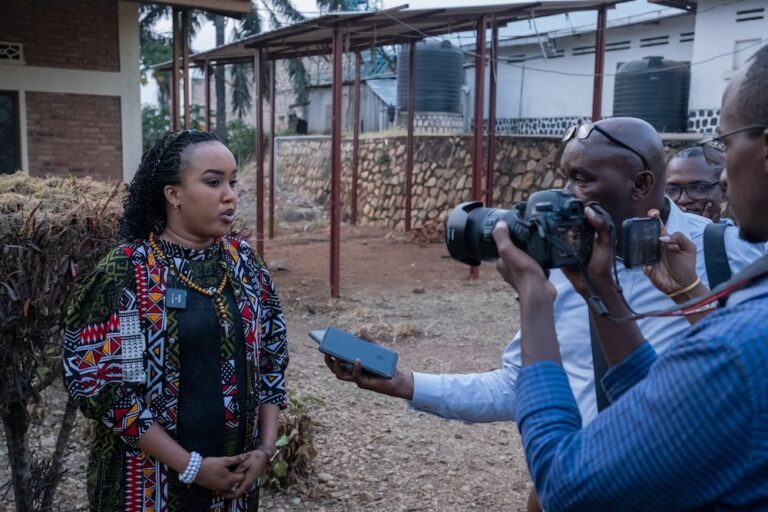(AMARC/IFEX) – The following is an AMARC press release: World Press Freedom Day: AMARC calls for media law reform to support community radio Colombo, 3 May 2006 – On the occasion of World Press Freedom Day (3 May), AMARC, the World Association of Community Broadcasters, called upon governments worldwide to develop national policies and supportive […]
(AMARC/IFEX) – The following is an AMARC press release:
World Press Freedom Day: AMARC calls for media law reform to support community radio
Colombo, 3 May 2006 – On the occasion of World Press Freedom Day (3 May), AMARC, the World Association of Community Broadcasters, called upon governments worldwide to develop national policies and supportive legal frameworks that enable and encourage community media. The call for media law reform was endorsed by participants at the UNESCO World Press Freedom Day conference on “Media, Development and Poverty Eradication” held in Colombo, Sri Lanka 1 – 2 May 2006.
AMARC also marked World Press Freedom Day with the launch of a global study on community radio and its impact on poverty eradication. The study is to commence with an AMARC Asia-Pacific Community Radio Roundtable on 5 May in Colombo and will be followed with similar events in Latin America, Africa and Europe.
AMARC noted that the Asia-Pacific region has witnessed both positive and negative developments in community radio during the past year, ranging from attacks on community radio stations to imminent legislation. A spate of community radio stations has mushroomed in South East Asia thanks to the opening of the airwaves in Indonesia and continuing growth in Thailand, although there remain serious problems in the regulatory framework for community radio in both of these countries.
Despite being caught in the crossfire between Maoists and armed forces, community radio has also played a key role in the restoration of democracy in Nepal.
The good news did not extend to other parts of the South Asian region, where antiquated laws continued to prevent community broadcasting. AMARC noted that legislation in countries such as Bangladesh and India is long overdue and urged their governments to expedite the process. More than a decade after the Indian Supreme Court judgment of 1995 declared the airwaves to be public property, community radio has yet to find legitimacy in India. A draft document of community radio has been languishing with the Group of Ministers for the past six months. Similarly, Bangladesh recently formulated draft legislation on community radio. The crucial question, however, was when this would be translated into legislation.
The AMARC study will include a global mapping of the state of community radio, assessment of the impact of the sector and the effectiveness of initiatives to support its further development. The results of the study are to be presented at AMARC’s Ninth World Conference to be held in Amman, Jordan, from 11-17 November 2006.


